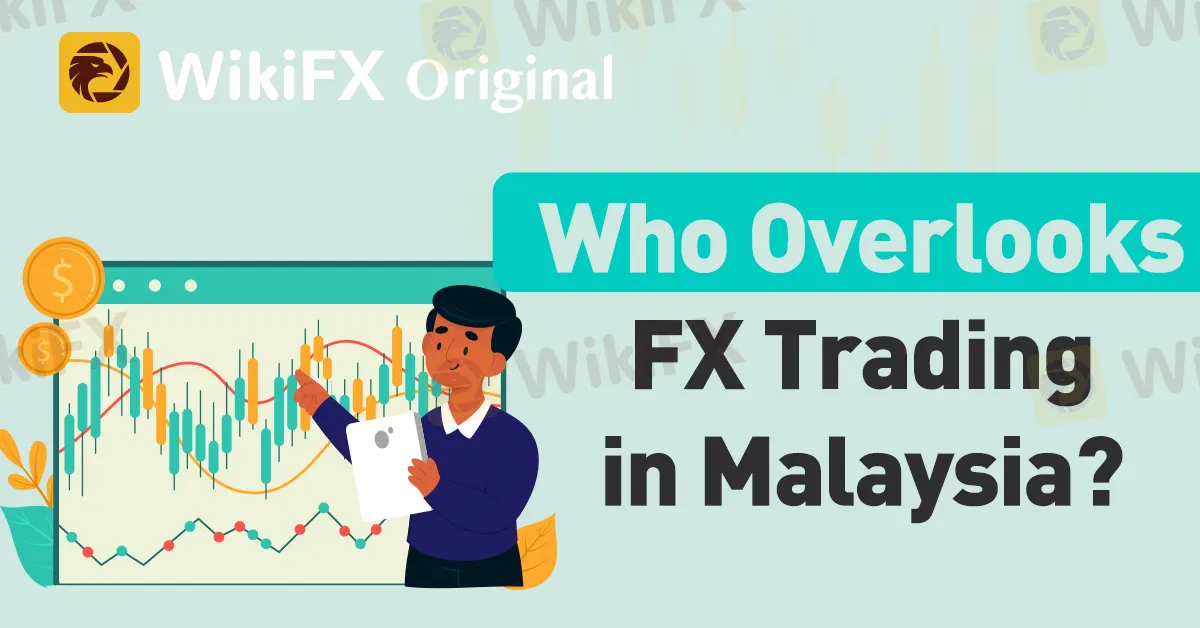简体中文
繁體中文
English
Pусский
日本語
ภาษาไทย
Tiếng Việt
Bahasa Indonesia
Español
हिन्दी
Filippiiniläinen
Français
Deutsch
Português
Türkçe
한국어
العربية
Who Overlooks FX Trading in Malaysia?
Abstract:In this article, we will delve into the regulatory landscape of forex trading in Malaysia, emphasizing the importance of trading with regulated brokers to mitigate risks.

Forex trading, also known as foreign exchange trading, is a lucrative yet highly risky financial activity that attracts investors from all around the world, including Malaysia. In this article, we will delve into the regulatory landscape of forex trading in Malaysia, emphasizing the importance of trading with regulated brokers to mitigate risks.
The Regulatory Authorities:
1. Bank Negara Malaysia (BNM):
As the central bank of Malaysia, BNM plays a vital role in overseeing the country's financial system. Under its purview, BNM regulates all financial institutions, including those providing forex trading services. Its primary goal is to maintain financial stability and safeguard the integrity of the forex market by imposing strict guidelines on licensed institutions.
2. Securities Commission Malaysia (SC):
The SC serves as the primary regulatory agency for Malaysia's capital market. While its main focus is on overseeing the trading of securities on the Bursa Malaysia stock exchange, it also has authority over forex contracts trading. The SC aims to create a fair and transparent market for investors and imposes rules and regulations to ensure market integrity.

Other Government Bodies Involved:
In addition to BNM and SC, several other government bodies have a role in the regulation of forex trading in Malaysia:
Ministry of Finance: It plays a significant role in crafting financial policies and regulations related to forex trading.
Ministry of Domestic Trade and Consumer Affairs: This ministry is involved in ensuring fair practices and consumer protection within the forex industry.
Securities Industry Development Corporation: This organization assists in the development and growth of the securities industry, including forex trading.

Key Regulations Governing Forex Trading:
1. Capital Market and Services Act 2007 (CMSA):
The CMSA is a crucial piece of legislation that provides the legal framework for the regulation of Malaysia's capital market, including forex trading. It outlines the powers and responsibilities of the SC and establishes rules to promote market efficiency, investor protection, and fair trading practices.
2. Securities Commission Malaysia Act 1993 (SCMA):
The SCMA specifically empowers the Securities Commission Malaysia to regulate various aspects of the capital market, ensuring that all participants adhere to the prescribed standards of conduct and operational procedures.
3. Futures Industry Act 1993 (FIA):
The FIA addresses the regulation of futures contracts, including those related to forex trading. It seeks to maintain a well-functioning and transparent futures market, safeguarding both traders and the overall market stability.
4. Banking and Financial Institutions Act 1989 (BAFIA):
The BAFIA primarily governs banking and financial institutions, including those involved in forex trading. It lays down the guidelines for the operation and supervision of these institutions to uphold the financial system's integrity.
Importance of Trading with Regulated Brokers:
Forex trading inherently involves substantial risks due to market volatility and leveraged trading. Therefore, it is imperative for investors to only engage with regulated brokers authorized by the relevant authorities. Trading with regulated brokers offers several advantages, including:
Investor Protection: Regulated brokers must comply with stringent standards, ensuring that investors' interests are safeguarded.
Transparency: Regulated brokers are required to disclose essential information to investors, promoting transparency in their operations.
Market Integrity: By trading with regulated brokers, investors contribute to the overall integrity and stability of the forex market.

Disclaimer:
The views in this article only represent the author's personal views, and do not constitute investment advice on this platform. This platform does not guarantee the accuracy, completeness and timeliness of the information in the article, and will not be liable for any loss caused by the use of or reliance on the information in the article.
Read more

Trader Exposes Unethical Practices by STP Trading
A recent allegation against STP Trading has cast doubt on the firm's business practices, highlighting the potential risks faced by retail traders in an increasingly crowded and competitive market.

What Makes Cross-Border Payments Easier Than Ever?
Cross-border payments are now faster, cheaper, and simpler! Explore fintech, blockchain, and smart solutions to overcome costs, delays, and global payment hurdles.

FCA Identifies Clone Firm Exploiting Admiral Markets' Credibility
The UK Financial Conduct Authority (FCA) has issued a public warning regarding a fraudulent entity impersonating Admiral Markets, a legitimate and authorised trading firm. The clone firm, operating under the name Admiral EU Brokers and the domain Admiraleubrokerz.com, has been falsely presenting itself as an FCA-authorised business.

Malaysian Man Loses RM113,000 in Foreign Currency Investment Scam
A 57-year-old Malaysian man recently fell victim to a fraudulent foreign currency investment scheme, losing RM113,000 in the process. The case was reported to the Commercial Crime Investigation Division in Batu Pahat, which is now investigating the incident.
WikiFX Broker
Latest News
Webull Partners with Coinbase to Offer Crypto Futures
eToro Expands Nationwide Access with New York Launch
Why Is UK Inflation Rising Again Despite Recent Lows?
Hackers Charged for $11M Crypto Theft Using SIM-Swaps
Role of Central Banks in the FX Market
FCA Alerts Against Sydney FX
What Makes Cross-Border Payments Easier Than Ever?
Trader Exposes Unethical Practices by STP Trading
Interactive Brokers Launches Tax-Friendly PEA Accounts in France
Google Warns of New Deepfake Scams and Crypto Fraud
Currency Calculator


